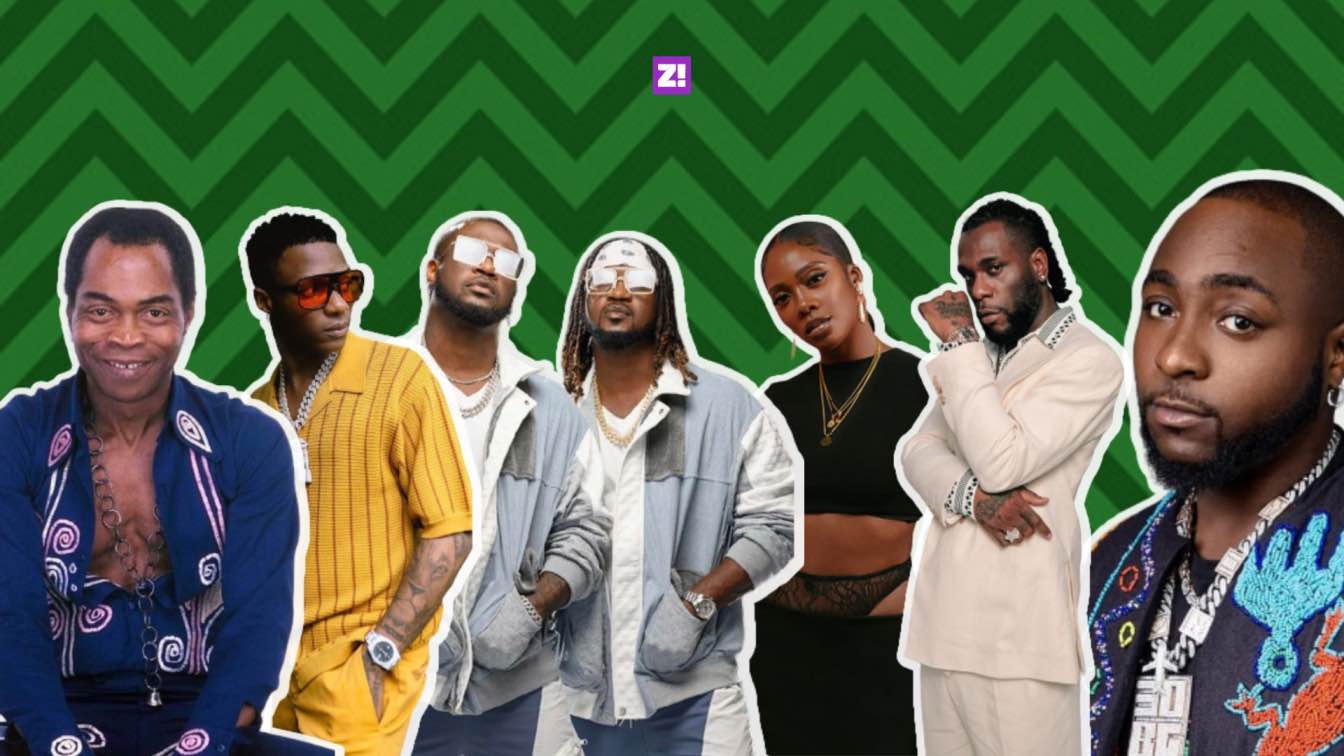“Ahh, finesse! If I broke na my business.” was one of the most sung lyrics of 2022. Not since Tekno’s 2016 hit, Pana, had the name “Folake” put Nigerians in such a major chokehold. But with Finesse becoming our unofficial national anthem, Folake was in trouble again. And Pheelz, the man behind the hit, was quickly transitioning from in-demand producer to artiste of the moment.
Before Finesse, Pheelz had been riding on a wave of success as “Ridimakulayo” or “Pheelz Mr. Producer”, the producer behind major hits like Olamide’s Durosoke, Teni’s Billionaire, Fireboy FML’s Scatter and Adekunle Gold’s Pick Up (more recently, he produced Stand Strong for Davido).
With a lengthy resume of hits, Pheelz was as big as any producer could be, so why the shift from producer to artiste? Before we get into that, it’s important to know Pheelz wasn’t the first producer to pull this off.
The days before Pheelz
No album defined early 2000s afrobeats like 2Face’s 2004 debut album, Face 2 Face. The “no skips” album made 2Face the leader of Nigeria’s new school at the time, but not a lot of people knew the man behind that album was none other than the late OJB Jezreel. OJB also produced for artistes like Daddy Showkey, Olu Maintain and Weird MC. Still, it wasn’t until he became famous as a singer, with Searching and Pretete that people finally registered his name.
And by 2008, other producers (like J Martins who produced Game Over for P-Square) had transitioned from console to microphone.
The first significant producer-to-artiste transitions that kicked off a new generation happened with Maleek Berry and Sarz, two producers who featured Wizkid on their breakout hits: Beat of Life and The Matter respectively.
Maleek eventually went on a different path, leading with vocals on his 2016 EP, Last Daze of Summer. Meanwhile, Sarz has continued David Guetta and Metro Boomin’s method of laying the beat and inviting a featured artiste to sing.
Breaking down the job of a producer through movies
I’ve always been curious about a music producer’s job, so I asked a couple, and the best analogy came from one who compared his job to a film director’s. Music producers are behind the scenes overseeing the whole shebang, like a Kemi Adetiba or Ishaya Bako, while artistes are the actors who are front and centre, like an Adesua Etomi or Tobi Bakre.
Producers are actively involved in the writing and recording of music. They help the artiste translate the sound stuck in their head, choose the perfect spot to throw in that amapiano beat or insist that the chorus should be the first verse and the first verse should be the bridge.
Sometimes, producers build the music from the ground up and hand it to artistes — like Tekno did with If
Behind every major hit or artiste is a producer who made it all happen. Yet, not every producer is the equivalent of a Kemi Adetiba whose films are as popular for the director as they are for the actors. Even though many have their producer tags and unique sounds, most casual listeners need help telling the difference between a Tempoe-produced song and a beat laid down by P.Prime.
RECOMMENDED: These Producers Helped Make Afrobeats Famous, Give Them Their Flowers
Why are producers playing both sides?
Before streaming and royalties existed, producers received a one-time fee, while artistes got to earn through diverse ways. Picture this: Wizkid pays me ₦5m to produce a song and it becomes a hit. Wiz can perform it at different shows for a paycheck of ₦10m each time, or get paid some cool millions by a beverage company to use the song in their ad. He’s made a lot as the artiste, while the producer is still stuck with the ₦5m.
Even with streaming, not all producers can make close to what one artiste makes in a year. American producers like Murda Beatz and London on Da Track are staples on Forbes lists, but Nigerian producers don’t have the same financial clout. So the maths is simple; becoming an artiste translates to more money.
Outside of the concert cheques, there are endorsements. As a producer behind the scenes, the chances of brands noticing your work enough to make you the face of a product is slim. But you know what’s slimmer? The consumers actually recognising you in the ads without seeing your name.
These transitions are not just about the cheques
While it’s easy to narrow the motivations for these transitions to money, it’d also be a small-minded act on our end as music consumers. A clear example is Young Jonn, a producer who helped create street anthems like Olamide’s Story for the Gods, Falila Kaitan and Bobo.
As a singer, Young Jonn’s music is tonally different from his work as a producer. Songs like Dada, If You Leave and Xtra Cool are stripped-down emotional love songs compared to the gritty sounds he made for Olamide, Lil Kesh and Davido. Becoming a singer helped unlock a different phase of his artistry, and the charts agree with me when I say it slaps.
It’s also important to note that like Young Jonn, some producers who are now singers actually started out as singers before production took off.
They ventured into producing for themselves but ended up creating hits for other people. Now, it’s easier for them to return to what they always wanted to do.
There’s also the argument for the shelf life of Nigerian producers. More often than not, producers get more expensive with experience and relevance. Not everyone can afford a Sarz beat right off the bat. This means he has to reserve his beats for the biggest names in the industry like Wizkid and Beyoncé, or artistes he feels a musical connection with, like Obongjayar and Lojay. But with cheaper producers popping up daily, it’s easy for even these artistes to branch outside their usual collaborators in search of new and affordable sounds.
More transitions coming
Following the recent success of these transitions, with Pheelz and Young Jonn dropping two of the biggest songs of 2022 — Finesse and Xtra Cool respectively — it’s only a matter of time before other producers grab the mic. After all, who’d have the best formula to make a hit record than the producer who can also sing? The question now is: Who’s next? Tempoe? Niphkeys? Rexxie? Or Killertunes? We still have time to find out.
ALSO READ: Which Nigerian Music Producer-Turned-Singer Surprised You the Most?




